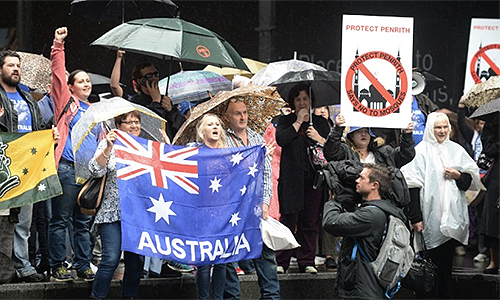
by HENRY JOM – THE Australian Bureau of Statistics has backflipped on its decision to collect Australians’ ethnic data, citing “significant issues” and “complexities”.
This comes amid criticisms that the decision will prevent Australians from knowing the change in demography as the country hits record migration numbers.
- Australia had the largest net overseas migration intake since records began.
- Govt says Australians are unable to accurately identify their ethnicity.
- Aboriginal leader calls government “racist” for not collecting ethnic data.
“Despite testing multiple concepts around ethnic identity, including ‘ethnic groups’, ‘cultural background’, ‘ethnic and cultural heritage’, and ‘the culture you belong to’, there were significant issues,” according to the ABS.
“The testing showed that the public is unlikely to have a consistent understanding of what ethnic identity is, or the difference between ethnic identity and ancestry.
IDENTITY
The ABS determined that due to these complexities, collecting both ethnic identity and ancestry on the same form is not feasible for the 2026 Census.”
Instead, the ABS said it would continue to enhance questions related to ancestry.
Jordan Knight from Migration Watch Australia is critical of the decision, saying that Western countries such as the United States, the UK and New Zealand all collect ethnic data.
“Everybody else basically in the West does it … so, it’s a little strange that Australia has decided not to collect ethnicity data, especially on the back of the fact that we brought in nearly 800,000 people in the past 12 months,” Mr Knight said.
“I think that would rapidly change the composition of a country, and I think people will start asking questions when they do see that their country change rapidly. And I think the government is probably or I assume trying to cover up this rapid change for fear of a backlash.”
As of June 30, 2023, overseas migration contributed to a net gain of 518,000 people to Australia’s population – the largest net overseas migration estimate since records began, according to the ABS.
At the last census, the ancestry question recorded a person’s association with ancestries, ethnic origins and cultures with the intent to capture the “cultural context in which people were raised”.
For example, the questions asked were: what country a person was born in, their ancestry when they arrived in Australia, does the person speak another language at home, their religion, whether they were an Australian citizen and whether they were of Aboriginal or Torres Strait Islander origin?
“However, some people may respond according to how they may identify with a particular cultural group,” the ABS said of the last census.
“Ancestry in the Australian context is complex as there are many people with origins and heritage that do not, in practice, relate to their current ethnic identity.”
CULTURAL
According to Naomi Priest, a social epidemiologist from the Australian National University (ANU), ancestry data was about the geographic region of someone’s ancestry, while ethnicity data is specific to a person’s cultural identity.
“There’s also a lot of confusion between what’s your genetic ancestry? What’s your cultural identity? What’s your ethnicity?” Ms Priest said.
However, Amrita Malhi, also from the ANU, said that ethnicity is not a static feature that is easily defined.
“We’d have to determine what ethnicity is, and who is entitled to refer to their preferred group identity as an ‘ethnicity’,” she said.
“There are simply no stable, universal answers to these questions – whatever we settle on will hold true for some groups but not others.”
The ABS said its testing showed that people had different interpretations of the term “ethnic identity”, with some linking it with ancestry, even after an explanation was provided.
According to the ABS, “ethnicity” and “ethnic” are associated with many different meanings and refer to the shared identity, or similarity of a group of people on the basis of one or more distinguishing characteristics, such as cultural tradition, common language, or common geographic origin.
IMPACT
“Inconsistencies with public understanding of ‘ethnic identity’ may lead to poor data quality, impact the comparability of existing cultural diversity data over time,” a spokesperson told the ABC.
Meanwhile, Gunditjmara leader Jill Gallagher, CEO of the Victorian Aboriginal Community Controlled Health Organisation, said that without ethnic data being gathered, addressing health inequalities among Aboriginal people would be challenging.
For example, she said that Aboriginal people in Victoria were not accessing screening facilities for cancer treatment until it was too late.
“If we can’t measure, whatever, programs or things that we put in place, if we can’t measure the outcome of it, then why do it,” Ms Gallagher said, adding that it was “racist” to not collect the data.PC










